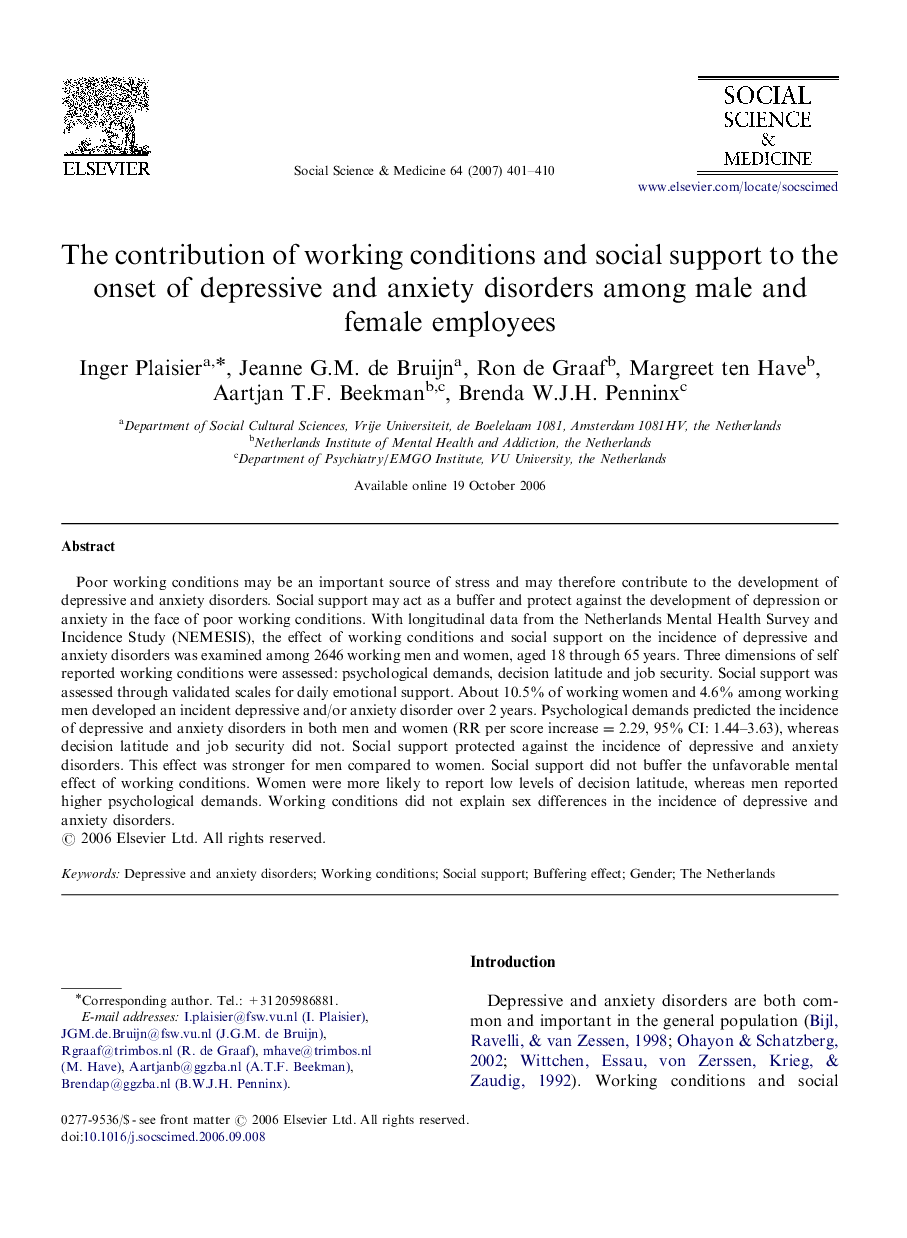| Article ID | Journal | Published Year | Pages | File Type |
|---|---|---|---|---|
| 954875 | Social Science & Medicine | 2007 | 10 Pages |
Poor working conditions may be an important source of stress and may therefore contribute to the development of depressive and anxiety disorders. Social support may act as a buffer and protect against the development of depression or anxiety in the face of poor working conditions. With longitudinal data from the Netherlands Mental Health Survey and Incidence Study (NEMESIS), the effect of working conditions and social support on the incidence of depressive and anxiety disorders was examined among 2646 working men and women, aged 18 through 65 years. Three dimensions of self reported working conditions were assessed: psychological demands, decision latitude and job security. Social support was assessed through validated scales for daily emotional support. About 10.5% of working women and 4.6% among working men developed an incident depressive and/or anxiety disorder over 2 years. Psychological demands predicted the incidence of depressive and anxiety disorders in both men and women (RR per score increase=2.29, 95% CI: 1.44–3.63), whereas decision latitude and job security did not. Social support protected against the incidence of depressive and anxiety disorders. This effect was stronger for men compared to women. Social support did not buffer the unfavorable mental effect of working conditions. Women were more likely to report low levels of decision latitude, whereas men reported higher psychological demands. Working conditions did not explain sex differences in the incidence of depressive and anxiety disorders.
